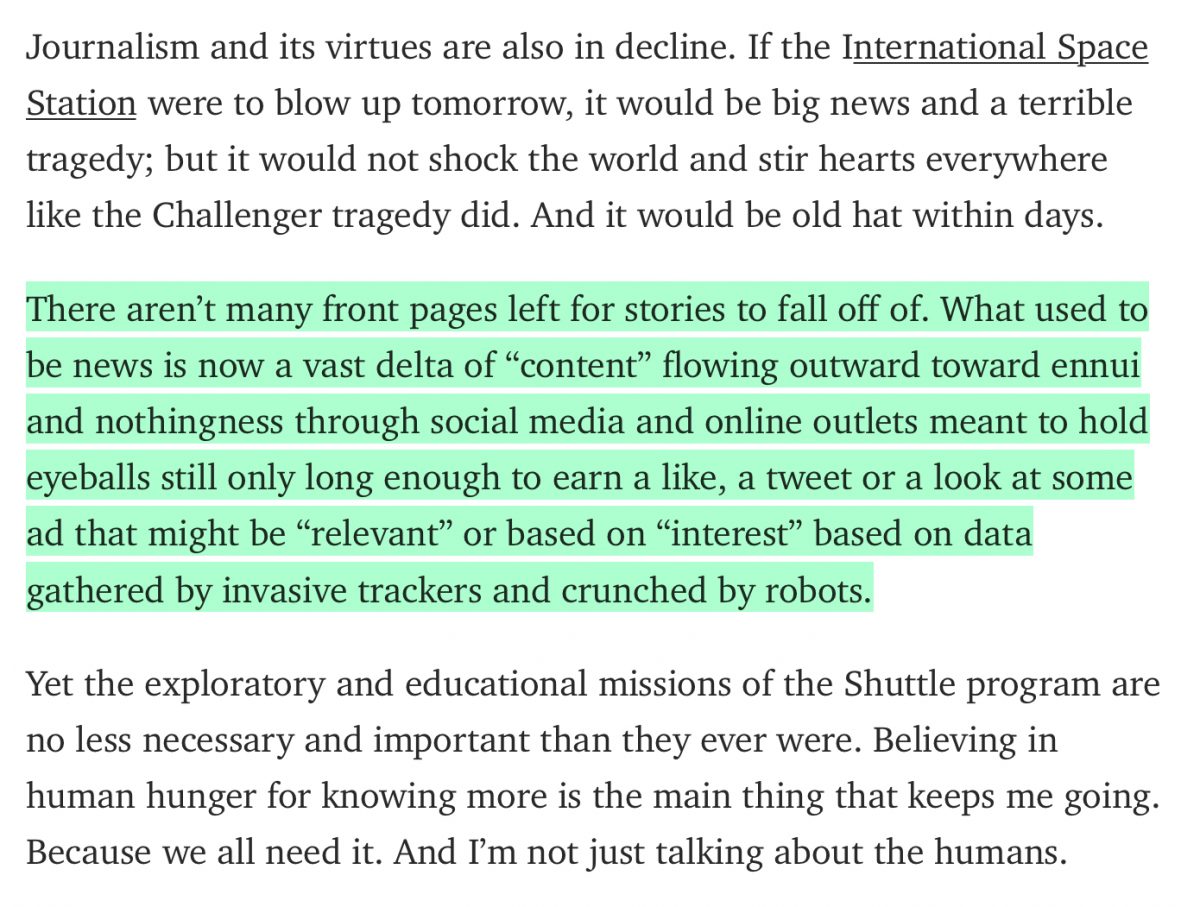Via doc searls - accidental lessons: reflections on the challenger tragedy
I wonder, how has the monetize-attention-with-targeted-ads environment we've wound up in changed how we perceive the world and events around us. If the ISS blew up, it'd be big news, but only until the president tweeted something, or some giant company was caught doing something stupid. Or some president tweeted something stupid. News of major events used to bring people together. Physically. I remember watching updates from the original Gulf War, on TVs in hallways on campus. People - students, profs, staff - gathered around, paused together, before moving on and returning later. Now, we glance at a phone, nod, and repeat. It started with the 24-hour news cycle, which really came to become a real thing during that first Gulf War, and has now grown to become endless, individualized, targeted and hyper-tribalized news feeds, optimized not for communication or information, but for maximizing advertising revenue.
